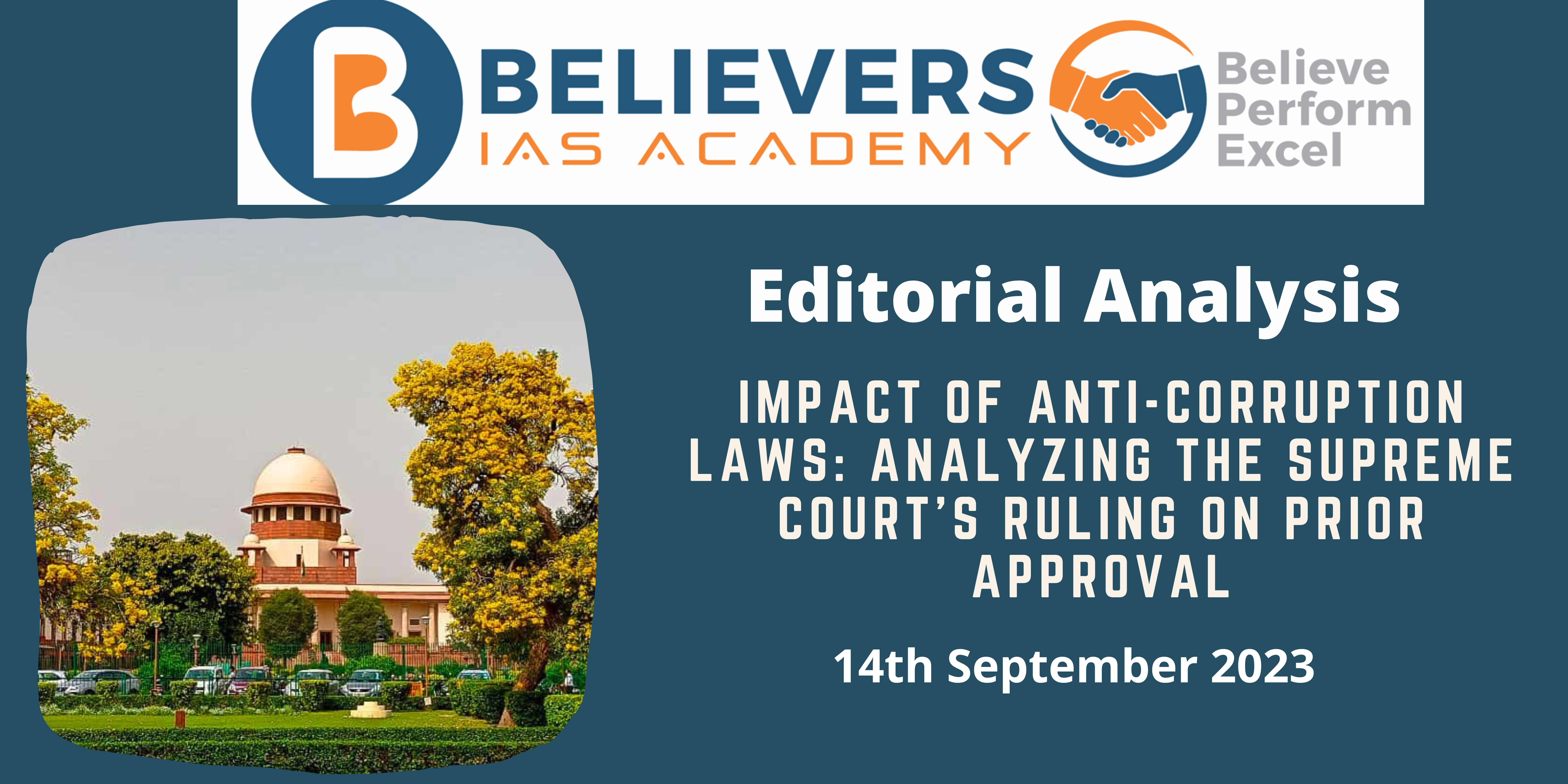Impact of Anti-Corruption Laws: Analyzing the Supreme Court’s Ruling on Prior Approval
Context:
The Supreme Court’s Constitution Bench ruling on the retrospective effect of Section 6A of the Delhi Special Police Establishment Act, which required prior approval from the Central government to initiate corruption probes, raises questions about the balance between anti-corruption efforts and the rights of public servants.
Relevance:
GS-02 (Statutory Bodies, Government Policies & Interventions, Transparency & Accountability)
Prelims:
Delhi Special Police Establishment Act, Central Bureau of Investigation (CBI).
Main Question:
How does the retrospective effect of Section 6A impact corruption investigations, and what are the implications of requiring prior approval for such probes? 10 marks
Dimensions of the Article:
- Historical Background
- Retrospective Effect
- Limited Applicability
- Section 17A and Its Implications
- The Debate Over Prior Approval
Historical Background:
- In 1997, the Supreme Court struck down the Centre’s ‘Single Directive,’ which hindered statutory investigations into corruption with administrative instructions.
- In response, Section 6A was introduced in 2003, mandating Central government approval before investigating corruption charges against officials of Joint Secretary rank and above.
- However, in 2014, the Supreme Court invalidated Section 6A, citing it as inconsistent with the norm of equality since it protected only a specific class of public servants.
Retrospective Effect:
- The recent judgment affirms that its 2014 ruling on Section 6A will have retrospective impact from its introduction in 2003.
- This means that allegations dating back to the period between 2003 and 2014 will be affected by this decision.
Limited Applicability:
- The judgment’s scope is limited since it mainly affects cases within the 2003-2014 timeframe.
- The current legal landscape has evolved significantly, especially with the introduction of Section 17A in 2018.
Section 17A and Its Implications:
- The 2018 amendment introduced Section 17A, making prior government approval mandatory before initiating probes into decisions or recommendations made by public servants.
- This initial filter was created while still requiring sanction for prosecution during trial court proceedings.
The Debate Over Prior Approval:
- The judgment highlights concerns about prior approval requirements for anti-corruption investigations.
- In the 2014 verdict, the Court noted that such provisions obstruct the goals of anti-corruption laws, inhibit the truth from emerging, and may alert implicated officials early on.
- While safeguards are necessary to prevent frivolous inquiries, it is equally important that these provisions do not shield corrupt individuals.
Conclusion:
- The retrospective effect of the Supreme Court’s ruling on Section 6A underscores the need to strike a balance between anti-corruption efforts and the rights of public servants. While prior approval requirements aim to prevent misuse of investigative powers, they should not become tools to protect corruption.
- It is crucial to continuously evaluate and refine anti-corruption laws and procedures to ensure they serve the public interest effectively. The focus should remain on upholding transparency, accountability, and the fight against corruption while safeguarding the rights of individuals involved in public service.




